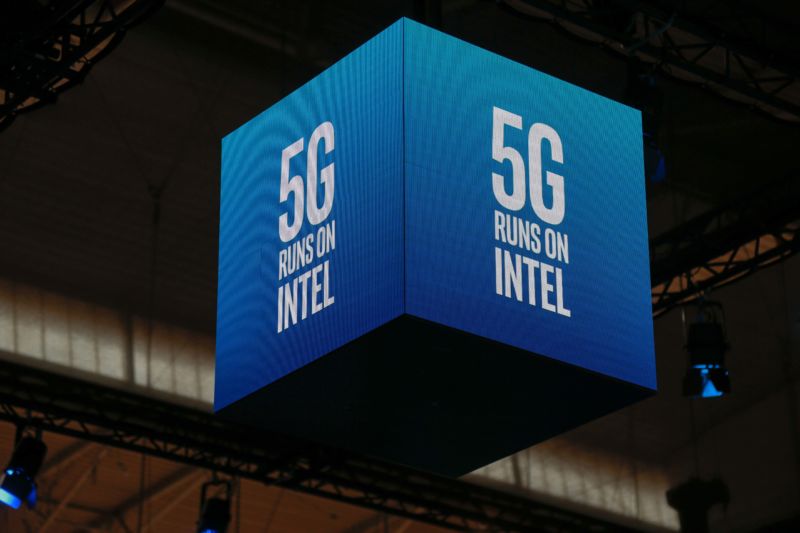
Intel says it is canceling a line of smartphone 5G chips that had been slated for 2020 launches. The announcement comes on the same day Apple announced a wide-ranging settlement with Qualcomm over patent issues.
Qualcomm has long been a dominant player in the wireless chip business for smartphones. Apple worries about becoming too dependent on a single supplier. So in recent years, Apple has encouraged Intel to expand its wireless chip offerings and offered Intel a significant share of its business for 4G chips in the iPhone.Then last year, as Apple's legal battle with Qualcomm heated up, Intel became Apple's sole supplier for 4G wireless chips in the iPhone. Intel additionally was working to develop 5G chips for Apple to use in future versions of the iPhone. But recent reports have indicated that Intel was "missing deadlines" for the wireless chip that was slated to go into the 2020 model of the iPhone.
Fast Company reported earlier this month that "in order to deliver big numbers of those modems in time for a September 2020 iPhone launch, Intel needs to deliver sample parts to Apple by early summer of this year, and then deliver a finished modem design in early 2020."
If Intel had failed to provide Apple with 5G chips in a timely manner, that would have put Apple in an untenable position. The iPhone's competitors would be able to offer 5G capabilities using Qualcomm chips, while Qualcomm could have denied Apple access to 5G chips as long as the patent battle continued.
A bit of column A, a bit of column B...
Still, it's not clear whether Apple's settlement with Qualcomm forced Intel to leave the 5G market or whether Intel's impending exit from the 5G market forced Apple to settle with Qualcomm. It's likely that the causation ran a bit in both directions.As long as Apple was battling Qualcomm, Intel could expect to supply chips for all of Apple's iPhones, providing enough scale to justify Intel's hefty investment in developing the technology. But now that Apple and Qualcomm are once again able to work together, Intel can expect Qualcomm to supply at least some of the 5G chips in the 2020 iPhone—and Apple would have had more leverage to negotiate better pricing.
"In the smartphone modem business it has become apparent that there is no clear path to profitability and positive returns," Intel CEO Bob Swan said in yesterday's press release.
Intel says that it will honor existing contracts for 4G chips and is re-assessing "opportunities for 4G and 5G modems in PCs, internet of things devices and other data-centric devices." The company will continue investing in 5G chips for network infrastructure.
reader comments
99